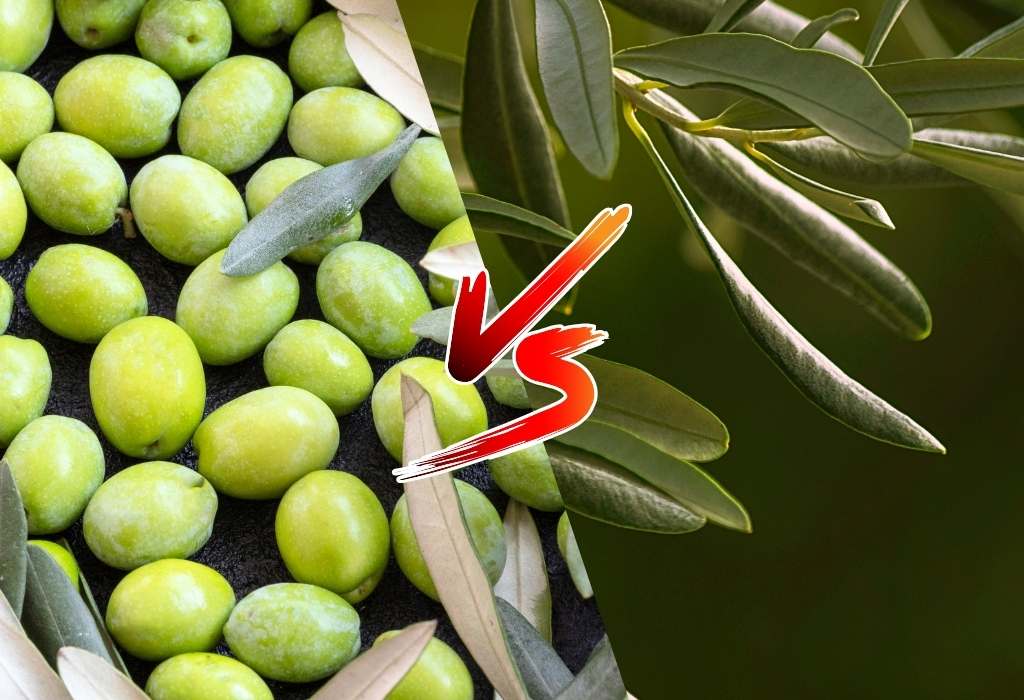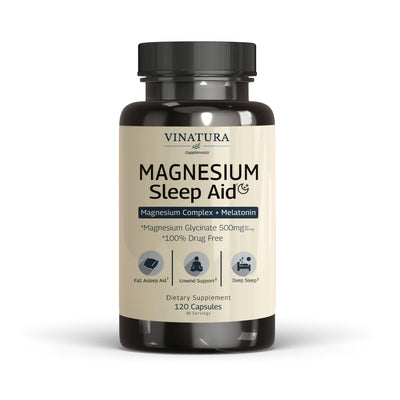
What Is The Difference Between Olive Fruit Extract Vs Olive Leaf Extract?
Olive fruit extract and olive leaf extract are two of the most commonly used forms, widely applied in both medicine and cooking. While both come from the olive tree and contain similar active compounds, they have different effects on users' health. What are these differences, and how can you apply them? Let's explore in this article.
Before exploring further, please read the disclaimer located at the end of this webpage.
Key Takeaways
- Olive fruit extract contains higher levels of hydroxytyrosol compared to olive leaf extract, while olive leaf extract has a higher concentration of oleuropein than the fruit extract.
- Olive fruit extract helps with antioxidation and slows down the natural aging process, while olive leaf extract offers antibacterial properties and supports the immune system.
- Olive fruit extract may cause gastrointestinal side effects such as diarrhea and discomfort, whereas olive leaf extract may lead to mild hypotension in some users.
Is Olive Extract The Same As Olive Leaf Extract?
A research report indicates that olive fruit and olive leaf extracts differ in their chemical composition ratios. Using biotransformation methods, the findings revealed that olive fruit extract primarily contains polyphenols like hydroxytyrosol, which enhances antioxidant capacity, supports heart health and protects cells.
In contrast, olive leaf extract contains a high level of oleuropein, which has antibacterial and antiviral properties and supports the immune system [1].
Comparison: Olive Fruit Extract Vs. Olive Leaf Extract

Similarities
- Natural Source: Both olive fruit and olive leaf extracts contain compounds with nutritional value that promote overall health, such as hydroxytyrosol, oleuropein, flavones, and phenolic acids [2].
- Anti-Aging Properties: Polyphenol compounds are a common feature in both olive fruit and olive leaf extracts, helping to enhance antioxidant capacity, protect body cells more effectively, and combat natural aging.
- Cardiovascular Health Support: Both extracts also have the potential to support and improve cardiovascular health.
Differences
|
Criteria |
Olive Fruit Extract |
Olive Leaf Extract |
|
Part |
From olive fruit |
From olive leaves |
|
Main Compound |
Hydroxytyrosol |
Oleuropein |
|
Health Benefits |
Antioxidant, anti-aging, skin protection, reduces risk of chronic disease |
Enhance immune resistance, provide antibacterial and antiviral properties, lower blood sugar levels, and improve blood circulation. |
|
Hydroxytyrosol Extraction Process |
The extract is obtained from the olive pomace after olive oil extraction, using a refining and crystallization process, with the addition of dextrin, followed by drying in an oven. |
Oleuropein is extracted from the leaves, and then hydrolysis is performed to convert it into hydroxytyrosol. |
|
Hydroxytyrosol Content |
High, ranging from 25% to 40%. |
Lower than fruit extract, ranging from 3% to 20% |
|
Side Effects |
May cause mild digestive issues like indigestion, nausea, diarrhea |
May cause dizziness, headaches for those with low blood pressure |
|
Disadvantages |
Limited in immune support It is generally more expensive. |
May have a natural bitterness if used directly It has a high ash content and is prone to clumping. |
|
Applications |
Food, cosmetics |
Medicine, herbal products, dietary supplements [2] |
What Does Science Say About Olive Fruit Extract Vs Olive Leaf Extract?
Olive Fruit Extract: A study conducted in China evaluated the antioxidant effects of olive fruit extract on mice [3]. The aim of this study was to examine how this extract impacts health by improving gut microbiota and antioxidant indicators.
- Methodology: Mice were divided into two groups, with one group receiving olive fruit extract and the other a saline solution for four weeks. Antioxidant enzyme levels and changes in gut microbiota were then measured and compared.
- Results: Olive fruit extract was effective in enhancing antioxidant enzyme levels in mice serum. Additionally, the gut microbiota improved, with a notable increase in beneficial bacteria.
Olive Leaf Extract: To assess the antibacterial effectiveness against major foodborne pathogens such as Listeria monocytogenes, Salmonella enteritidis, and Escherichia coli O157, researchers conducted the following study [5]:
- Methodology: Olive leaf extract at a concentration of 62.5 mg/ml was used to evaluate bacterial inhibition, as well as the ability of these pathogens to move and form biofilms.
- Results: The extract effectively inhibited the growth of all three foodborne pathogens. Notably, it reduced the motility and inhibited biofilm formation of L. monocytogenes. Therefore, olive leaf extract shows significant potential as an antimicrobial agent, particularly in the food industry.
How To Choose The Right Extract

Choosing the right extract largely depends on your needs and current health condition. To make your decision easier, consider the following:
- Use olive fruit extract if you want to combat oxidation and aging and improve your skin health.
- Use olive leaf extract if you aim to boost your immune system, manage blood pressure, and provide antibacterial and antiviral support for your body.
Dosage And Side Effects of Olive Extract
Dosage: Generally, studies have found that olive extracts are consumed at the following doses [4]:
- Cardiovascular protection, reducing oxidation, and improving blood sugar levels: 10–20 mg per day for pure olive oil.
- Antioxidant properties and reducing oxidative stress: 5 mg/kg of hydroxytyrosol for mice.
- Neuroprotection: 100 µg of hydroxytyrosol per day for mice.
Side Effects:
- Olive Fruit Extract: It is generally safe to use, with most reported symptoms being mild, especially for individuals with sensitive digestive systems, such as stomach discomfort, diarrhea, and nausea.
- Olive Leaf Extract: Some users may experience mild hypotension accompanied by dizziness and headaches, as the main compound, oleuropein, has a blood pressure-lowering effect.
Frequently Asked Questions
What Does Olive Fruit Extract Do?
It helps combat oxidation and natural aging, improves skin elasticity affected by aging, and also supports the cardiovascular health of the user.
Who Should Not Take Olive Leaf Extract?
People with low blood pressure should avoid using olive fruit extract, as its main compound, oleuropein, may cause a decrease in blood pressure.
Is Olive Leaf Extract Safe For The Liver?
The answer is yes; olive leaf extract is safe for the liver if used at the recommended dosage. However, it is important to avoid exceeding the dosage, as excessive use may overload the liver and cause other side effects.
What Are the Benefits Of Olives For Females?
The greatest benefit of olives for women is their ability to combat the effects of aging, improve skin elasticity, and help them maintain a youthful appearance.
Conclusion
Therefore, olive fruit extract is a suitable choice for those looking to combat natural aging, provide antioxidant benefits, and care for their skin. On the other hand, olive leaf extract is highly recommended for those who want to support their immune system and provide antibacterial and antiviral benefits to the body.
Don’t forget to consult with a healthcare professional to make the best choice based on both your needs and health condition.
References
- [1] Briante, R., Patumi, M., Terenziani, S., Bismuto, E., Febbraio, F., & Nucci, R. (2002). Olea europaea L. leaf extract and derivatives: antioxidant properties. Journal of agricultural and food chemistry, 50(17), 4934-4940. https://pubs.acs.org/doi/abs/10.1021/jf025540p
- [2] Xie, P. J., Huang, L. X., Zhang, C. H., & Zhang, Y. L. (2015). Phenolic compositions, and antioxidant performance of olive leaf and fruit (Olea europaea L.) extracts and their structure–activity relationships. Journal of Functional Foods, 16, 460-471. https://link.springer.com/article/10.1007/s11947-011-0719-z
- [3] Wang, M., Zhang, S., Zhong, R., Wan, F., Chen, L., Liu, L., ... & Zhang, H. (2021). Olive fruit extracts supplement improve antioxidant capacity via altering colonic microbiota composition in mice. Frontiers in Nutrition, 8, 645099. https://www.frontiersin.org/journals/nutrition/articles/10.3389/fnut.2021.645099/full
- [4] Martínez-Zamora, L., Peñalver, R., Ros, G., & Nieto, G. (2021). Olive tree derivatives and hydroxytyrosol: Their potential effects on human health and its use as functional ingredient in meat. Foods, 10(11), 2611. https://www.mdpi.com/2304-8158/10/11/2611 Liu, Y., McKeever, L. C., & Malik, N. S. (2017). Assessment of the antimicrobial activity of olive leaf extract against foodborne bacterial pathogens. Frontiers in microbiology, 8, 113. https://doi.org/10.3389/fmicb.2017.00113
Author

Product Disclaimer
The dietary supplement products mentioned on this website are formulated based on scientific research and adhere to FDA guidelines for dietary supplements. However, the content of the articles has not been evaluated by the Food and Drug Administration (FDA) and is not intended to promote or endorse any specific product. Any products sold on this website are not intended to diagnose, treat, cure, or prevent any disease.
Opinions and Endorsements
Any claims, statements, or opinions expressed in the articles are those of the author(s) and do not necessarily reflect the views or opinions of the manufacturers of the dietary supplement products. The products sold on this website are separate from the content of the articles and are not directly endorsed or associated with the information presented here.
Liability Disclaimer
The author(s) of the articles, website, and manufacturers of the dietary supplement products do not assume any liability for any potential consequences arising from the use of the information provided in the articles. It is recommended that individuals consult with a qualified healthcare professional before making any dietary or lifestyle changes, including the use of dietary supplements.
Product Usage
Please refer to the product labels and packaging for specific usage instructions and guidelines for the dietary supplement products sold on this website.
Customer Support
For any concerns or questions regarding the dietary supplement products, please contact our customer support team, who will be more than happy to assist you.





Leave a Comment
Be the first to comment.
What do you think?